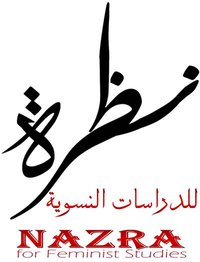Egypt: Celebrating International Women's Day after the Jan25 Revolution
A group of young women and men led by Nawal Saadawi – a prominent Egyptian feminist – called for A Million Women March on 8 March to celebrate the centenary of International Women’s Day. A number of young people joined the coordination meetings and other women's rights groups decided to participate in the march with their slogans.

What do women gain from the Jan25 Revolution?
The success of the revolution is shaping a new liberal, democratic framework within which women should utilize their gains from the revolution. Such gains could be summarized as follows:
· The creation of new roles for women in the public sphere, including active engagement in political parties and groups established after the revolution
· The redefinition of bodily protection norms women have been raised on, which they are re- questioning due to the emergency situation
How should the women's movement continue working?
The women movement in Egypt should focus on maximizing their gains from this democratic moment through:
· Self criticism of strategies they used before when dealing with women's rights issues
· Continuing to engage politically on the level of activism in different political groups and ensure real representation and active work
· Rejecting all sort of militaristic hegemony over political life or state "feminism"
· Working on social mobilization of other different groups, such as human rights defenders organizations, labor unions and dis-empowered communities such as people with disabilities.
How to analyze what happened during the IWD march within the current context?
The incidents of the IWD march in Cairo should be seen in a wider context. Egypt is facing the second wave of the revolution where demands are being further articulated and in this case women's demands. Women’s groups are not the only groups advocating for their demands, and others are students, workers and religious minorities. This phase is an interim phase ruled by the military and should be shortened by all means through a fast transition to a civilian administration. All these rights are demanded within political, social and cultural contexts that need redefining based on more liberal and democratic values.
Lessons learned from the event?
· Choosing our battles by engaging in the calls for democracy and civic government by engaging with other movements in their calls for democracy, such as labour women, youth, students and others
· Gender mainstreaming for political and social movements
· Engaging politically with all the demands of political democratization
The event was challenging because we were alone again, while thousands of Copts and university students were calling for their rights at the same time
Why we should be looking forward for change
The women’s movement should know better that there is a long way to walk to achieve justice and equality and we are still taking the first steps on this road. The event was a test for women’s determination as this was the first time in decades they were seen in the public sphere with banners and chants for women’s specific rights.
10 March 2011


